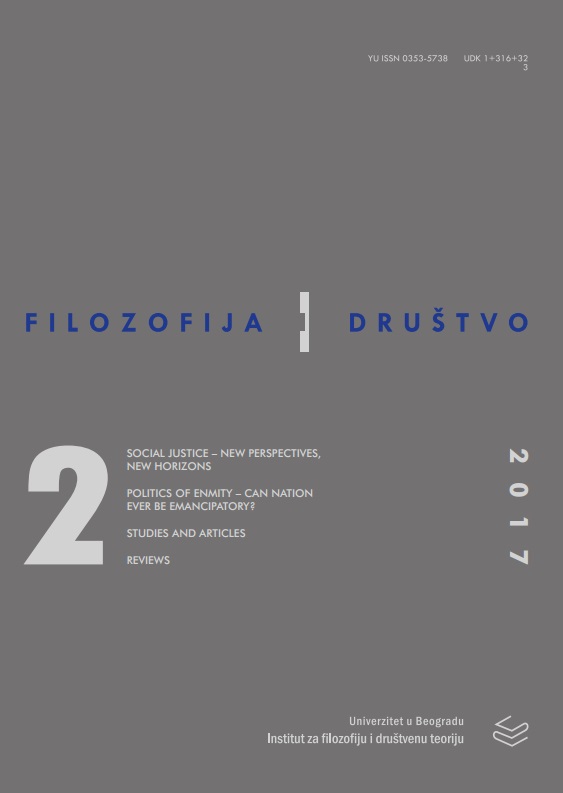Social Justice and the Formal Principle of Freedom
Social Justice and the Formal Principle of Freedom
Author(s): Olga Nikolić, Igor CvejićSubject(s): Ethics / Practical Philosophy, Political Philosophy, Comparative politics
Published by: Institut za filozofiju i društvenu teoriju
Keywords: social justice; social policy; taxation; freedom; dignity; Hayek; Nozick; Kant
Summary/Abstract: The aim of this paper is to show, contra the right-libertarian critique of social justice, that there are good reasons for defending policies of social justice within a free society. In the first part of the paper, we will present two influential right-libertarian critiques of social justice, found in Friedrich Hayek’s Law, Legislation and Liberty and Robert Nozick’s Anarchy, State and Utopia. Based on their approach, policies of social justice are seen as an unjustified infringement on freedoms of individual members of a society. In response to this critique, we will introduce the distincion between formal and factual freedom and argue that the formal principle of freedom defended by Hayek and Nozick does not suffice for the protection of factual freedom of members of a society, because it does not recognize (1) the moral obligation to help those who, without their fault, lack factual freedom to a significant degree, and (2) the legal obligation of the state to protect civic dignity of all members of a society. In the second part of the paper, we offer an interpretation of Kant’s argument on taxation, according to which civic dignity presupposes factual freedom, in order to argue that Kant’s justification of taxation offers good reasons for claiming that the state has the legal obligation to protect factual freedom via the policies of social justice.
Journal: Filozofija i društvo
- Issue Year: 28/2017
- Issue No: 2
- Page Range: 270-284
- Page Count: 15
- Language: English

